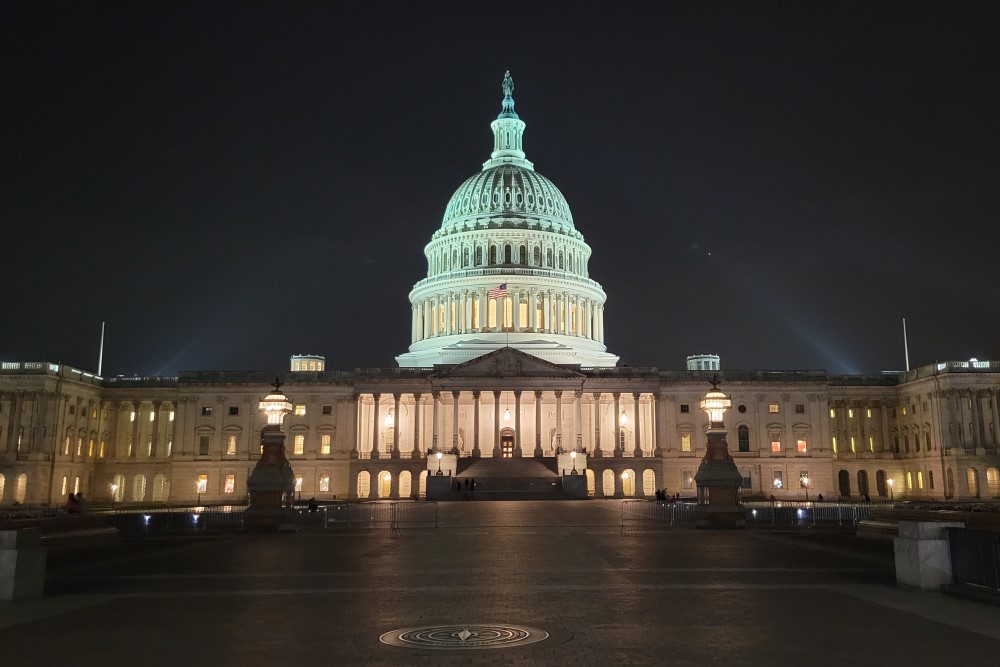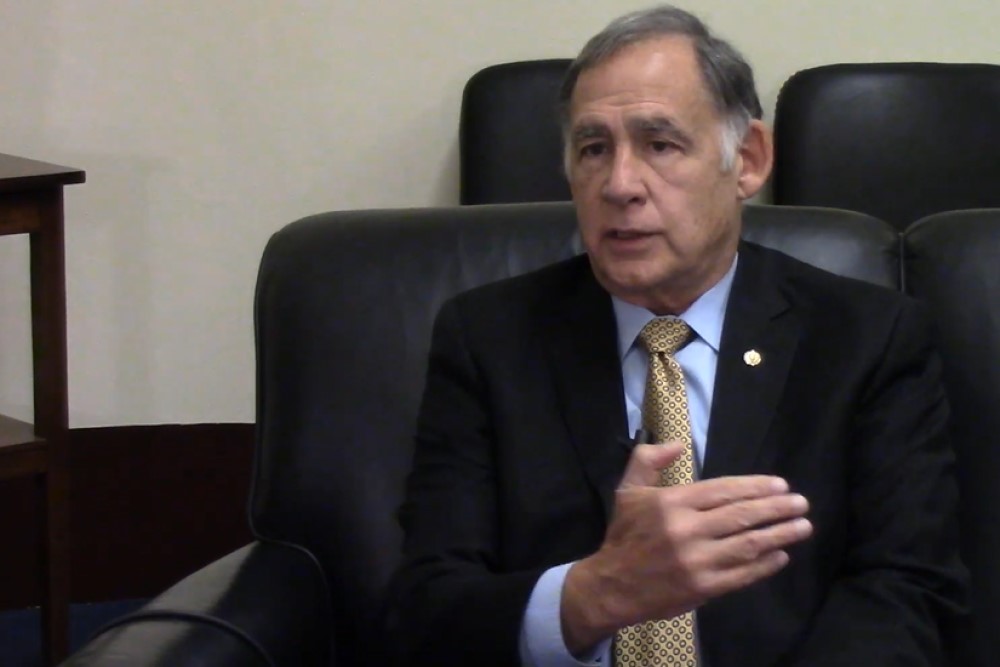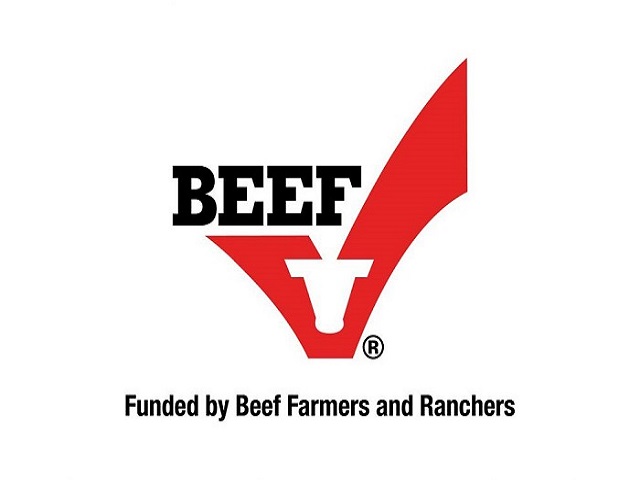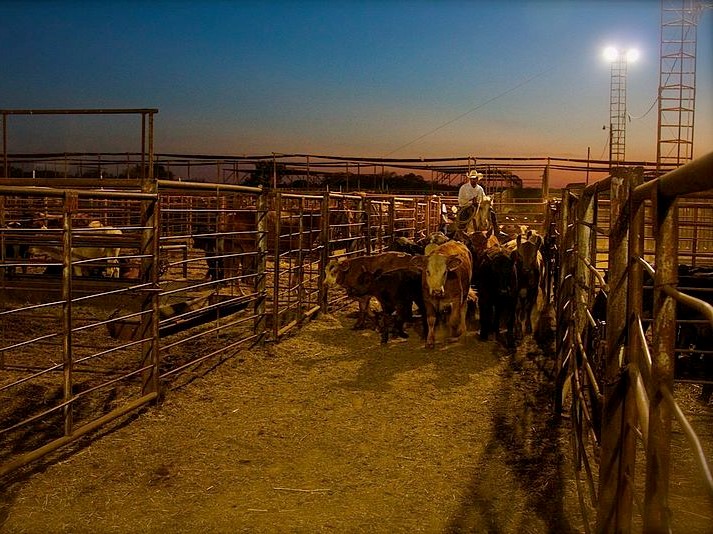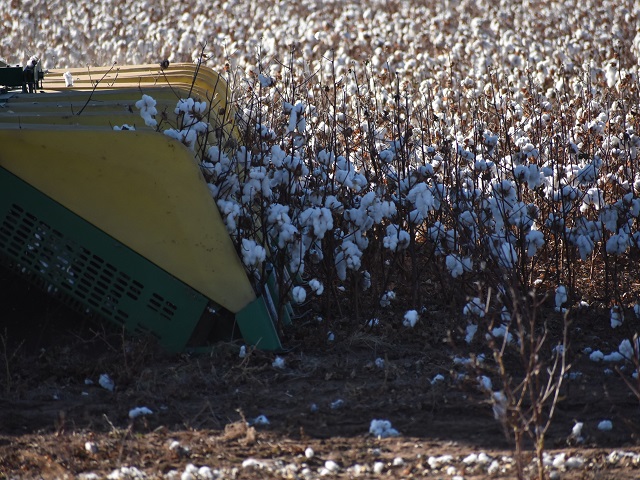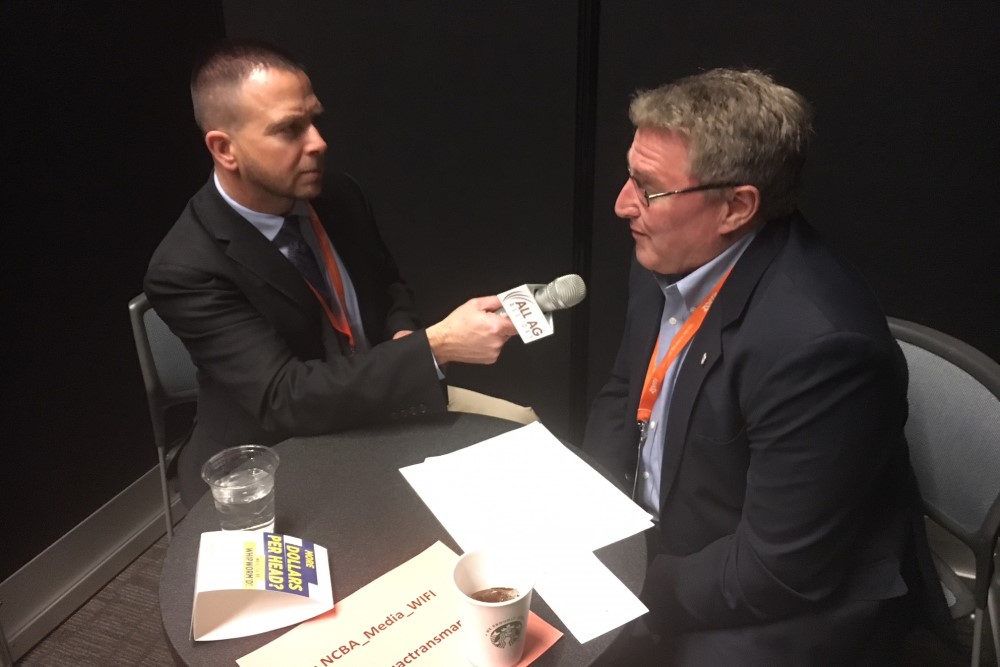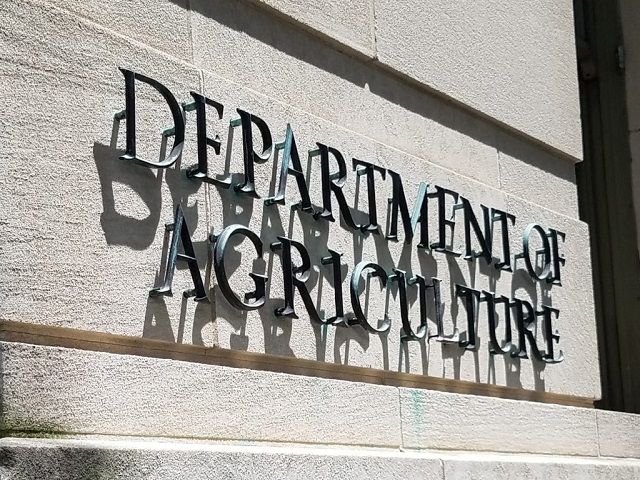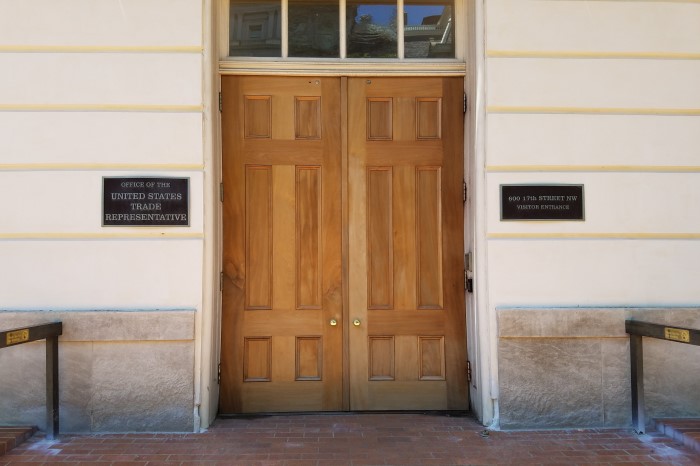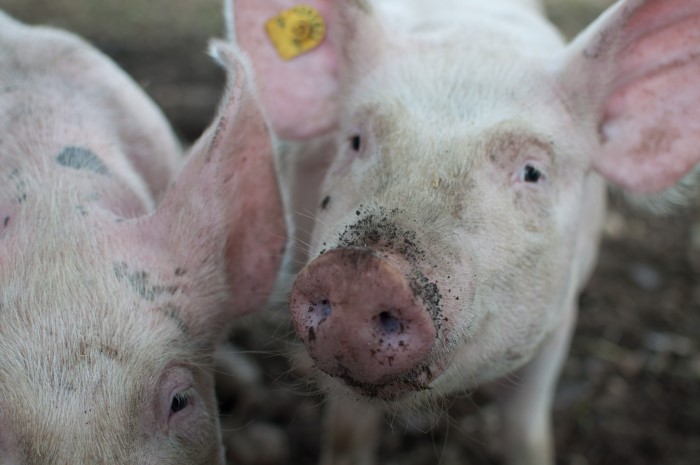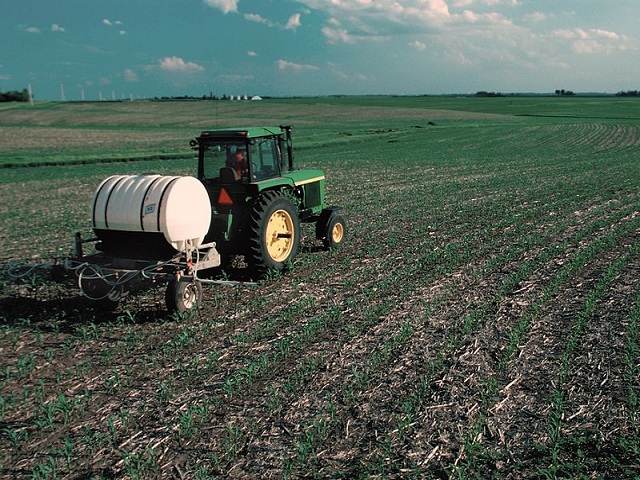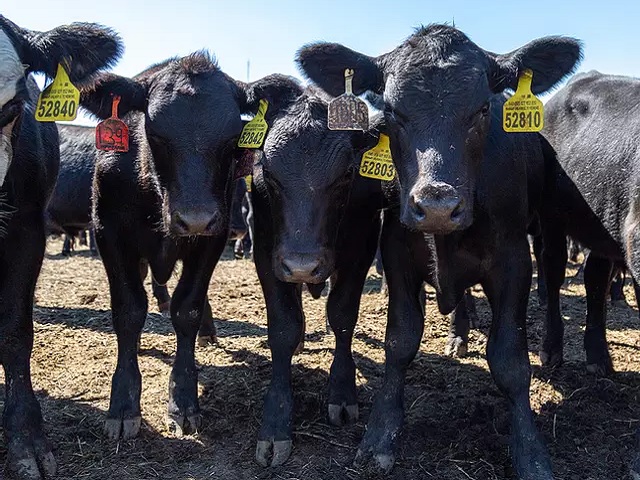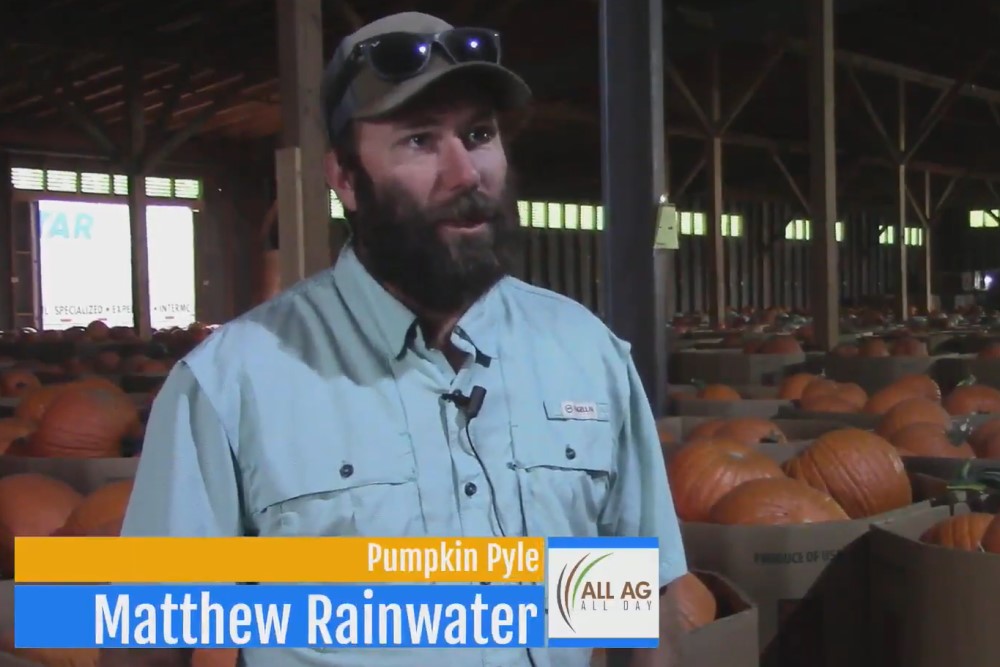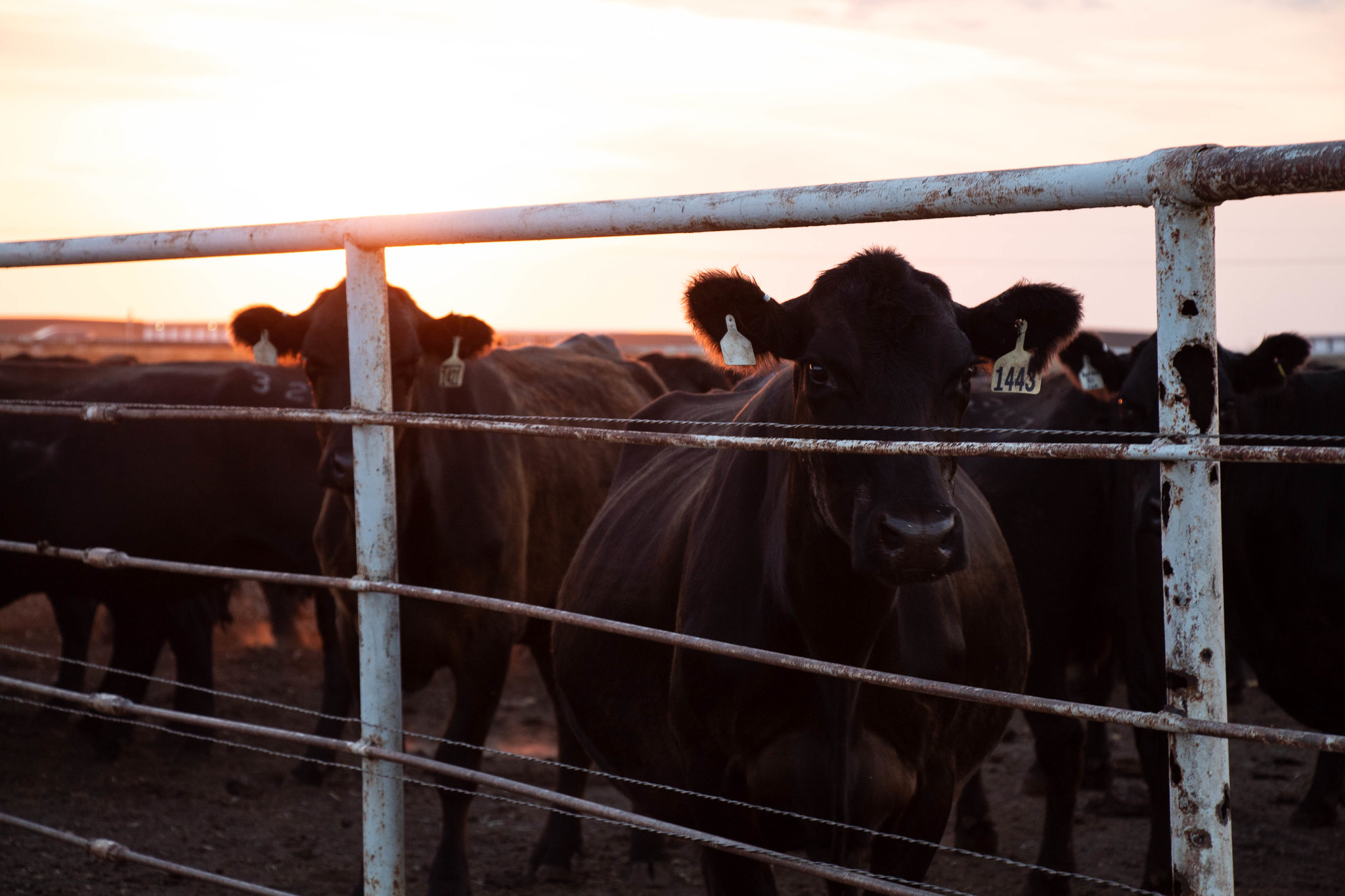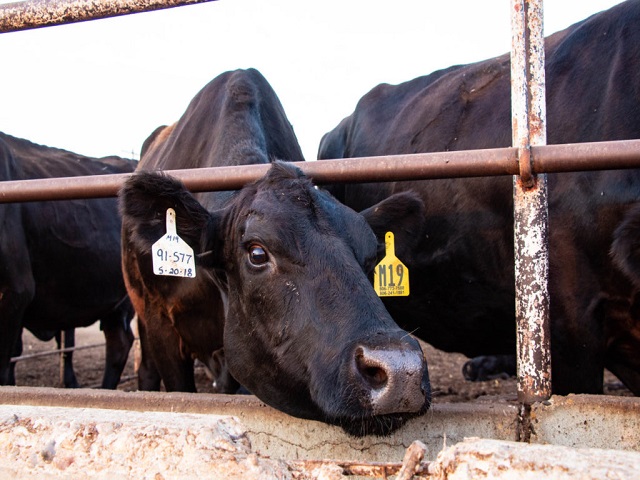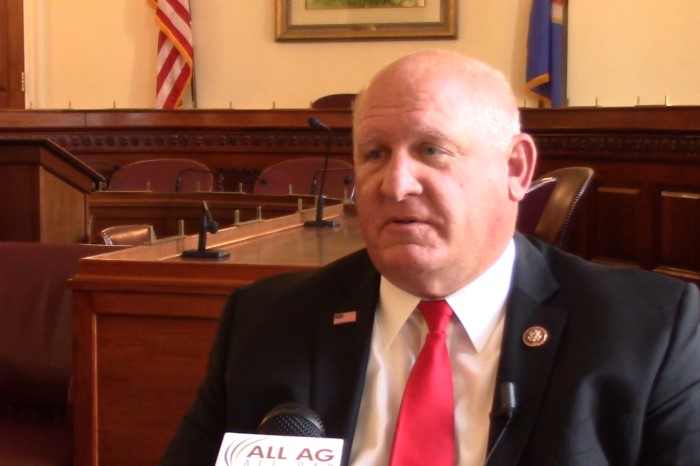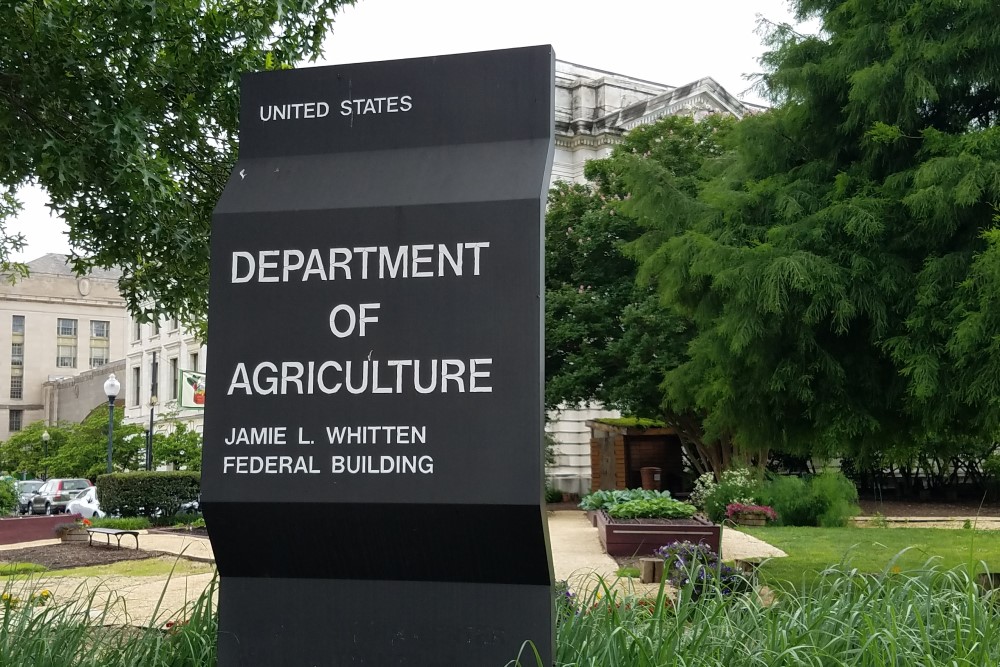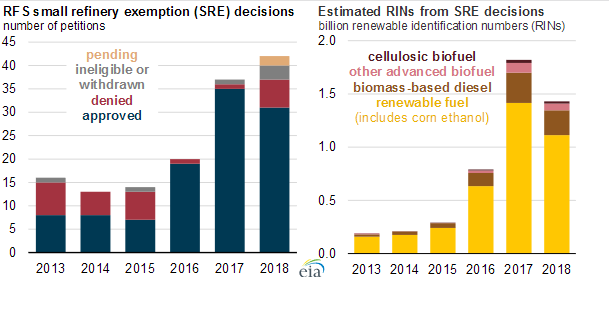Biofuel Demand Expected to Remain Stable Next Year
The Renewable Fuel Standard (RFS) mandates the amount of renewable fuels refineries must blend into the U.S. transportation fuel supply. As part of the RFS program, the U.S. Environmental Protection Agency (EPA) can grant annual waivers to some petroleum refineries, called small refinery exemptions (SREs), which are provided under conditions of economic hardship. The Clean Air Act exempted small refineries from participating in the program through 2010. EPA, however, extended these exemptions for 2011 and 2012. In 2013, changes allowed small refineries to petition EPA for an exemption if RFS compliance would cause disproportionate economic hardship for the refinery. SRE waivers exempt petroleum refineries from their renewable volume obligation (RVO), typically for the previous compliance year. SREs are typically approved retroactively after the previous compliance year has ended. On August 9, 2019, EPA approved 31 SREs, equivalent to 1.43 billion Renewable ID Numbers (RINs), or about 7.4 percent of the 19.3 billion gallon target of renewable fuel for the year. RINs are the compliance credits used in the RFS program and are generated when renewable fuels are produced domestically or imported. To meet their obligations, refineries may blend renewable fuel or purchase RINs from other parties that have not used RINs for compliance or obtain an SRE from the EPA. Although the number of RINs refineries use to comply with the RFS program has generally increased since 2014, the U.S. Energy Information Admnistration expects U.S. biofuels consumption to remain mostly stable in 2019 and 2020, based on its most recent Short-Term Energy Outlook.











